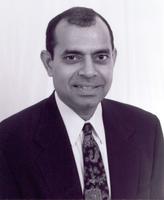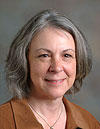Scanlon July 2005 E-zine
Greetings!
In this E-Zine we feature two exciting opportunities for Scanlon Network members...a new seminar on innovation and a Hoshin research project. The seminar will help you and your organization innovate faster. It has been designed by Praveen Gupta who helped to invent Six Sigma while at Motorola University. The Hoshin project will evaluate your Hoshin process and help you understand how Toyota uses Hoshin to create a system of five alignments. In this issue we also recognize a great Scanlon Leader from Trans-Matic and a group of new Scanlon Leaders...the interns from the Frost Center at Hope College.
Major Study Will Research Benefits Of Scanlon's Hoshin System
The Scanlon Leadership Network invites members to participate in an upcoming Hoshin Research Project designed to assess the benefits and effectiveness of their Hoshin process.
The study, which begins in the late summer-fall, will be conducted by Dr. Michael Moore, professor of high-performance work systems at Michigan State University, and Dr. Bill Mothersell, professor of management at Grand Valley State University in Grand Rapids, Michigan.
"We're focusing on Scanlon because the Network has a high percentage of leading companies that use Hoshin planning as a result of their Hoshin Quick Start system," said Moore. "Our research will pose questions about how much of the full Hoshin model members are using, and what benefits and problems, if any, they've experienced," he added.
Mothersell and Moore, who is a former colleague of Scanlon's Dr. Carl Frost, plan to present the results in a paper at the Scanlon Annual Conference in May 2006.
"Through the study companies will become more familiar with Hoshin planning, gain exposure to the complete Hoshin model and assess Hoshin's most value-added features of their own current planning systems," explained Moore. The professors also hope to learn more about Hoshin concepts as they witness it being practiced across several types of industries.
"The Hoshin Research Project validates the Scanlon Network as a vehicle for advancing the science of leadership and management," said Moore.
Together Moore and Mothersell have developed a full model of Hoshin planning and the different ways the system is used. In addition to their studies of Hoshin, they have also led training courses on aligning human resources practices with Lean Manufacturing and conducted a seminar for General Motors University for GM's European plants.
Developed by Scanlon and the Donnelly Corporation (now Magna Donnelly), the Hoshin Quick Start system is a way of getting everyone in an organization pointed in the same direction. Hoshin helps link Key Measures of a manager with the objectives of the next higher level of management, and tracks an organization's progress toward the set goals and objectives at frequent intervals. These tools are then used as the basis of supportive reviews to identify and remove obstacles to achieving these goals.
To protect privacy, companies will not be named in the results of the Hoshin Research Project.
For more information or to join the study, call Scanlon Network President Paul Davis at (517) 332- 8927 or e-mail the office at office@scanlonleader.org.
Seminar Will Teach Innovation Concepts, Methods
 The Scanlon Leadership Network, in conjunction with Quality Technology Company (QTC), will offer a one-day seminar on innovation designed to help executives, managers and engineers accelerate their companies' business growth, increase services or capabilities and generate value-added solutions to better serve customers.
The Scanlon Leadership Network, in conjunction with Quality Technology Company (QTC), will offer a one-day seminar on innovation designed to help executives, managers and engineers accelerate their companies' business growth, increase services or capabilities and generate value-added solutions to better serve customers.
"Institutionalizing Innovation," which will be held in September in Chicago, will teach the concepts and tools of innovation using hands-on activities. The seminar will help attendees generate new ideas for their companies, develop creative solutions and realize financial benefits as a result of innovation.
Praveen Gupta, President of QTC and instructor for the seminar, defines innovation as the result of an intellectual initiative to introduce new elements through study, experimentation, discovery or invention to produce a new process or product for the first time, or to improve an existing process or product.
"Businesses today operate in an increasingly competitive economy," said Gupta. "Innovation has become a distinguishing factor in maintaining market share and achieving financial success in a corporation," he added. "Companies must learn how to quickly generate innovative solutions to stay ahead of the competition."
The seminar will give an overview of the basic building blocks of innovation, along with methods to standardize innovation in the workplace.
Gupta, who has written several books on Six Sigma and innovation, encourages companies to involve all employees intellectually. Brain power, says Gupta, is the least utilized resource in the business environment.
"Our goal is to harness creativity to advance a corporation instead of utilizing just the mechanical and physical abilities of employees," he said. "Because margins are shrinking and companies are doing things better, faster and cheaper, conventional methods no longer suffice. Innovation is key."
The seminar's topics are applicable to service, manufacturing and other types of businesses.
"Innovation is based on people," explained Gupta, "and people aren't all that different - innovation is relevant in any setting." Whether individuals or groups from companies attend, Gupta recommends that participants identify opportunities and potential areas for innovation at their companies before attending the seminar.
Gupta taught Six Sigma at Motorola University and created the Six Sigma business scorecard for measuring corporate growth and profitability. Gupta, a Master Six Sigma Black Belt, has been developing concepts for innovation for 25 years. His latest book, Science of Innovation, is due to be released in early 2006.
For more information about the seminar, contact the Scanlon Leadership Network at (517) 332-8927 or at office@scanlonleader.org.
Longstanding Scanlon-Frost Center Ties Promote Student Participation, Competence
The Frost Research center, established in 1990 to honor Dr. Frost and his study of Organizational Development, is based at Hope College's Social Sciences division in Holland, Mich. With its methodology anchored in organizational research, specifically the Principles developed by Dr. Frost, the Center is committed to supporting Hope College's student body through the incorporation of the Scanlon Principles.
Dr. Frost, a Professor Emeritus at Michigan State University, is a pioneer in the theory and practice of participatory management. He is also known for his development of Scanlon's four Principles: Identity, Participation, Equity and Competence.
His lifelong work has supported the concept of the mentoring process as a powerful tool for learning. In the past he has sponsored one student intern per year. This year, however, the Center received applications from three students whose desire to gain experience in their field with a Scanlon company was strong enough to win each of them a spot in this year's Frost Center intern program.
Hope College sophomore William Ponkowski worked with Scanlon President Paul Davis at the Network's Annual Conference in May, while sophomore Jill Tableman worked at Spring Engineering and Junior Robert Croswell worked at Timber Roots. The students are all studying management at Hope College.
"I was so impressed with their enthusiasm and drive that I felt we had to invest ourselves in supporting two additional students this year," explained Frost Research Center Director Eileen Robertson- Rehberg. "Each of the students was well-qualified and ready to learn - we just couldn't say no. Dr. Frost has generously sponsored students throughout the years, and this seemed like an excellent opportunity to expand the program and further the Center's purpose." Robertson-Rehberg said she hopes to follow the same pattern from now on and offer multiple students the chance to experience life at a Scanlon company.
"Scanlon is about development from within. You have to build on the strengths of your workforce and educate them," she said. Consistent with Dr. Frost's approach, the Frost Center's student intern program aims to educate students through real-world experiences and build on the skills they've acquired in the classroom at Hope College.
"Throughout their internships the students observed that Scanlon is a method that's time-proven," said Robertson-Rehberg. "Here at the Frost Center we are guided by the same Principles as Scanlon member companies - we use a similar approach in our research," she added. "The four Principles are the foundation of our research at the Frost Center."
First Scanlon Coordinator Built Foundation Of Trust At Trans-Matic
As a former union shop steward and a strong proponent of participative management, Jim Polet was the perfect choice for Trans-Matic Manufacturing Company's inaugural Scanlon Coordinator. Now retired, Polet, who began working at Trans-Matic in 1973, served as a communication link between his colleagues and company CEO Pat Thompson.
Trans-Matic, headquartered in Holland, Mich., joined the Scanlon Leadership Network in 1974. Founded six years earlier by Thompson, the company manufactures high-volume, custom, deep-drawn metal stampings for use in the automotive and lock hardware industries, and in small power tools.
"Jim was a very articulate advocate of the Scanlon philosophy," said Thompson. "I think the role fit with his own personal philosophy, as well," he added.
Polet, a toolmaker at Trans-Matic until 1994, would advise Thompson and share input from employees about their relationship with management. He acted simultaneously as an informal adviser to both Thompson and Trans-Matic employees, sharing his colleagues' ideas and suggestions.
"His insight was valuable," said Thompson. "I was privy to what our employees were thinking. His input was helpful whenever we were making decisions," he added.
Polet believes that open communication is key in any workplace.
"A company has to open its books to the employees so they understand what's going on in terms of productivity and other information. Then they'll respond to leadership in a positive way. Sharing information is not necessarily the easiest thing to do, but it's certainly a satisfying one."
Employees readily accepted Polet as their leader, and when he offered an opinion, people respected him because he was credible.
"Jim helped build that foundation of trust that we have today," said Thompson. "He was here in the early years when people were skeptical about Scanlon. But Jim was the guy that others looked up to. And today, we have more trust here at Trans-Matic than we ever had, thanks in part to an employee-management relationship fostered by Jim. He was a one-of-a-kind guy."
Within two years of joining Scanlon, Trans-Matic had improved both productivity and profitability, rewarding its employees with quarterly bonuses.
"It really worked for us," said Polet. "I truly enjoyed the role I played at Trans-Matic," he added. "I always worked there with great satisfaction."

